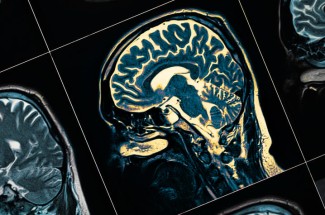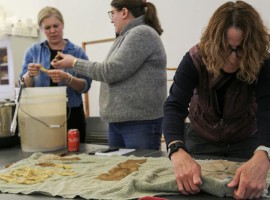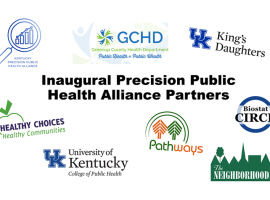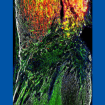UK social work researcher to study effects of PTSD on dementia

A researcher at the University of Kentucky will work to better understand the connection between posttraumatic stress disorder (PTSD) and dementia.
Karen Lawrence, Ph.D., who has a master's degree in social work, is an associate professor in the UK College of Social Work, has been awarded a five-year grant from the National Institute on Aging of the National Institutes of Health to study the effects of PTSD on cognitive aging.
The NIH defines PTSD as an anxiety disorder that develops in reaction to physical injury or severe mental or emotional distress, such as military combat, violent assault, natural disaster or other life-threatening events. Symptoms generally interfere with day-to-day life.
The NIH defines dementia as the loss of cognitive functioning — thinking, remembering and reasoning — to such an extent that it interferes with a person’s daily life and activities. Severity and symptoms can vary widely.
“In the United States, we know that one in three seniors dies with some type of dementia, whether that be Alzheimer’s disease, vascular dementia or frontotemporal dementia. PTSD is associated with a two-fold greater risk of developing dementia of any type,” said Lawrence.
In her study, “Cognitive Aging Trajectories in Survivors of Trauma,” Lawrence wants to investigate the impact of PTSD on cognitive decline and determine if the impact is different in men and women. To do so, she will analyze existing data from the National Alzheimer’s Coordinating Center, which includes data from 42 Alzheimer’s Disease Research Centers across the U.S. including the University of Kentucky Sanders-Brown Center on Aging.
Lawrence will also be collecting new (novel or original) data to find out if there’s an association between PTSD severity and cognitive functioning and then understand if the type of trauma matters in that relationship.
“To be diagnosed with PTSD, there are certain criteria that must be met, and that first criterion has to do with the type of traumatic event, such as threatened death or serious injury, and how it was experienced, such as directly or through witnessing it or learning about it happening to someone close to you but it wouldn’t include experiences such as job loss, exposure to news media, or the anticipation of future events,” explained Lawrence. “However, that comes into question post-pandemic because we’re seeing people with typical PTSD symptoms, but their type of trauma exposure doesn’t actually meet criterion A for the diagnosis.”
An analysis combining the results of multiple studies found a PTSD prevalence rate of 23% among the general population post-pandemic compared to 6% pre-pandemic.
“We usually associate that higher prevalence rate with first responders and combat veterans. Seeing this rate in civilians is alarming and makes it even more important to start understanding the association between PTSD and the increased risk for dementia,” said Lawrence.
Lawrence’s hypothesis is that if the other symptom criteria are met, then the association between PTSD and its effects on cognitive functioning will be present. She argues the potential findings could impact the scope of who needs intervention for PTSD treatment and if that diagnosis should also be considered a target for the early prevention of dementia. For this part of the study, Lawrence will recruit participants and collect original data sometime in 2026.
In the first two years of the grant, Lawrence will go through advanced training components as part of the NIH Mentored Research Scientist Development Award (K01). It provides support for an intensive, mentored career development experience in the biomedical, behavioral or clinical sciences leading to research independence.
The NIH uses the K01 to support investigators pursuing career enhancement or career change. Lawrence’s goal is to become an expert on the effects of traumatic stress and biopsychosocial factors on cognitive aging.
“There’s a lack of understanding of PTSD in older adults, in general,” said Lawrence. “Older adults are less likely to be aware of what PTSD symptoms look and feel like. They’re less likely to seek out mental health treatment than some of us in younger generations, so PTSD is more likely to go undetected in older adults.”
Lawrence shared her empathy for people experiencing PTSD and dementia and their family members. She hopes her work can help prevent some of that pain.
“I have a military veteran family member, and so I’m sensitive to the suffering that’s caused by combat-related PTSD that we see in some combat veterans,” said Lawrence. “I’ve done a lot of research in veterans, and so to see that PTSD increases their risk for yet another potentially devastating condition pulled at me even more.”
Research reported in this publication was supported by the National Institute on Aging of the National Institutes of Health under Award Number K01AG070279. The content is solely the responsibility of the authors and does not necessarily represent the official views of the National Institutes of Health.





